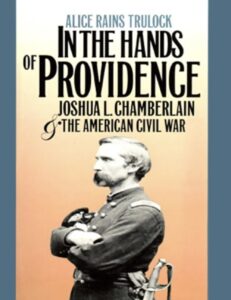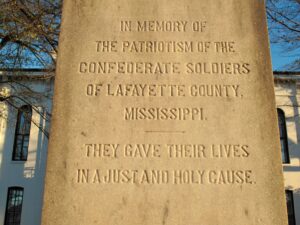
Katie meets Charlie on her 9th birthday
Charlie was born on October 4, 2007. The Feast of St. Francis. A bookend.
He recently came to his last days, loved, and surrounded by family. We didn’t use the word at the time, but he had a “hospice death.” My heart is so grateful.
Charlie grew with our family. He was a Cavalier King Charles Spaniel, a gift to our daughter, Katie, for her ninth birthday. Good friends raved about their Cavalier and their breeder. We didn’t know what it took to own and raise a dog, and we were sucked in. It sounded so fun.
The breeder required that the adopting family have someone at home during the day. After making a “social work” home visit, she approved us. Of course, she received a hefty fee, which we gladly paid.
Charlie took to sleeping with humans
 “Charlie” was not a very creative name, but it just seemed to fit a male King Charles Spaniel. At first, we crated him at night. After weeks of barking, he finally settled into his crate and his place at home. Until…
“Charlie” was not a very creative name, but it just seemed to fit a male King Charles Spaniel. At first, we crated him at night. After weeks of barking, he finally settled into his crate and his place at home. Until…
Our good friend, Roxanne, took Charlie in while we traveled. In her house, dogs slept with humans. Charlie would never again spend the night in a crate.
There is something very endearing about sleeping with a dog. Charlie would push up against my body or between my wife and me. He would snore and shift his position in the night.
 Charlie joined Katie in Oxford her second year at Ole Miss, where he supported her during roommate issues and dating cycles. Their deep bond reached new depths. A dog just loves unconditionally.
Charlie joined Katie in Oxford her second year at Ole Miss, where he supported her during roommate issues and dating cycles. Their deep bond reached new depths. A dog just loves unconditionally.
In a freak accident, Charlie broke his hip and required surgery. Katie and Charlie made it through those days together, and forever one of his hind legs stuck out to the side. It was quite loveable to see when he sat on his haunches, one leg akimbo.
Charlie goes to Washington

High five on Katie’s graduation from college
After graduation, Katie moved to Arlington, Virginia, with Charlie and eventually took a job on Capitol Hill. Long days, especially when the Senate was in session, made keeping Charlie with her impossible. I picked him up last September, and we drove the 900 miles back to Oxford. He was the best road trip buddy. I will miss that.
Like I heard from so many of my hospice families, there were many signs that the end was approaching, but we didn’t think of it until after he died. Arthritis was setting in, and we gave him a daily pain pill. We noticed that he had become deaf. No more did he cock his head to the side when we spoke to him. (The way he used to do that was the best.)
Charlie made one last kayak trip to the swamp

Charlie’s last wilderness trip
I made one last kayak trip with Charlie in October. I featured him in my “Hank’s Deep Thoughts” video filmed that day. It was about how dogs practice mindfulness naturally when humans have to work at it. Charlie has hiked and camped and canoed and road tripped. This crisp October morning was his last wilderness outing.
The first of November, he had some serious intestinal issues, and we took him to the vet. With a change in diet and some meds, he stopped going outside hourly all night long. We thought we had settled into a “new normal.” But we were settling into his last days.
Katie was home for Thanksgiving, and all seemed normal. On Tuesday, November 30, it all changed. His eating and drinking fell off. He stopped walking. For days, I held him up as he took a few bites of food or sips of water. His legs would not support him to poop or pee. We knew this was the end.
A mother’s intuition brought Katie home for one last visit
 On Sunday afternoon, my wife and I were pulling into the Walmart parking lot, and she blurted out, “Katie has to come home tonight.” It was a mother’s flash of insight for her soon-to-be grieving daughter. She called Katie and told her to get to National airport and get on a plane. I picked her up in Memphis with Charlie a few hours later. They slept together on our bedroom floor that night before she returned to D.C., Monday. In the car on the way to the Memphis airport, she “Snapped” a photo to friends, “my last photo I’ll ever take with my baby.” Indeed, it was.
On Sunday afternoon, my wife and I were pulling into the Walmart parking lot, and she blurted out, “Katie has to come home tonight.” It was a mother’s flash of insight for her soon-to-be grieving daughter. She called Katie and told her to get to National airport and get on a plane. I picked her up in Memphis with Charlie a few hours later. They slept together on our bedroom floor that night before she returned to D.C., Monday. In the car on the way to the Memphis airport, she “Snapped” a photo to friends, “my last photo I’ll ever take with my baby.” Indeed, it was.

Three days before dying a comfortable death at home
We kept Charlie comfortable. He neither ate nor drank all day. He could not stand. We called the vet, but he was out of town. It was just as well. We wanted to avoid anything that might make his passing painful, like needle sticks. This was hospice. Comfort care and just love. We were spared having to decide to put him down. He died peacefully on our bed Monday afternoon.
It was December 6, 2021. The Feast of St. Nicolas. A bookend.
__________________________________________
Chaplain Hank Dunn is the author of Hard Choices for Loving People: CPR, Feeding Tubes, Palliative Care, Comfort Measures and the Patient with a Serious Illness and Light in the Shadows. Together they have sold over 4 million copies. You can purchase his books at hankdunn.com or on Amazon.

 I listened to all 48 hours of this 900+ page book. It was worth every minute. Grant overcame so many setbacks to succeed as a general and President. Most significantly, according to Chernow, was his conquering his struggles with alcohol, a fact he does not mention in his own memoir. Had the Civil War never happened, history might not have known the name of U.S. Grant. It was his strategy to cut off the Southern states from beyond the Mississippi River with the fall of Vicksburg (July 1863), send Sherman through Georgia (1864), and capture Lee’s Army of Northern Virginia at Appomattox. There was no finer moment in his life than when he offered generous terms of surrender to Lee. He hoped to begin the healing of a fractured nation. Sadly, as President, he had to fight the South again as it rose in the K.K.K. We are fortunate, as a nation, that Grant and Lincoln rose to the top when we needed them.
I listened to all 48 hours of this 900+ page book. It was worth every minute. Grant overcame so many setbacks to succeed as a general and President. Most significantly, according to Chernow, was his conquering his struggles with alcohol, a fact he does not mention in his own memoir. Had the Civil War never happened, history might not have known the name of U.S. Grant. It was his strategy to cut off the Southern states from beyond the Mississippi River with the fall of Vicksburg (July 1863), send Sherman through Georgia (1864), and capture Lee’s Army of Northern Virginia at Appomattox. There was no finer moment in his life than when he offered generous terms of surrender to Lee. He hoped to begin the healing of a fractured nation. Sadly, as President, he had to fight the South again as it rose in the K.K.K. We are fortunate, as a nation, that Grant and Lincoln rose to the top when we needed them. Author Ty Seidule was born on July 3rd into a family culture steeped in the myth of righteous cause for which we Southerners fought. When people said, “too bad you weren’t born on the 4th,” he’d reply that he was glad to have been born on the day of Pickett’s charge (there it is again). Seidule rose through the ranks in the U.S. Army and taught at West Point. Through his academic research and soul-searching, he concluded that the “lost cause” myth of the South was wrong. According to Seidule, the Civil War was about slavery and the Confederate soldiers who took up arms against the U.S. government were traitors. He makes a compelling argument that we no longer need to honor these traitors with monuments or U.S. Army bases.
Author Ty Seidule was born on July 3rd into a family culture steeped in the myth of righteous cause for which we Southerners fought. When people said, “too bad you weren’t born on the 4th,” he’d reply that he was glad to have been born on the day of Pickett’s charge (there it is again). Seidule rose through the ranks in the U.S. Army and taught at West Point. Through his academic research and soul-searching, he concluded that the “lost cause” myth of the South was wrong. According to Seidule, the Civil War was about slavery and the Confederate soldiers who took up arms against the U.S. government were traitors. He makes a compelling argument that we no longer need to honor these traitors with monuments or U.S. Army bases. Like most, I knew of Chamberlain for only a few hours of his life on July 2, 1863, at Gettysburg. He commanded the 20th Maine at the extreme end of the Union line on Little Round Top. His troops were under repeated assault and running out of ammunition. Had he failed in defending his position, the entire U.S. Army on the field could have been destroyed in a flanking maneuver by the advancing Confederates. He ordered his men to fix bayonets, and they charged downhill, capturing more than 100 Southerners and saving the day. Many books and movies have captured this one moment. He was a college professor before the war. He became a college president and served four years as governor after returning to Maine. One other moving scene in Chamberlain’s military career was the last day of the war. He was the commander in charge of the ceremony at Appomattox, where the defeated rebels would surrender their arms. In the spirit that Grant set in the terms of surrender, Chamberlain ordered his men to salute their defeated foes, now countrymen once again.
Like most, I knew of Chamberlain for only a few hours of his life on July 2, 1863, at Gettysburg. He commanded the 20th Maine at the extreme end of the Union line on Little Round Top. His troops were under repeated assault and running out of ammunition. Had he failed in defending his position, the entire U.S. Army on the field could have been destroyed in a flanking maneuver by the advancing Confederates. He ordered his men to fix bayonets, and they charged downhill, capturing more than 100 Southerners and saving the day. Many books and movies have captured this one moment. He was a college professor before the war. He became a college president and served four years as governor after returning to Maine. One other moving scene in Chamberlain’s military career was the last day of the war. He was the commander in charge of the ceremony at Appomattox, where the defeated rebels would surrender their arms. In the spirit that Grant set in the terms of surrender, Chamberlain ordered his men to salute their defeated foes, now countrymen once again. With all believing God is on their side in a war, it is especially hard for the losers to explain what happened. This presented an exceptional problem for the dominant version of Christianity in the South (evangelical Protestant). In their view, the Yankees were more secular, more liberal, more urban, and less devoted Christians. This book by Charles Wilson, a former professor at the University of Mississippi and fellow church member with me in Oxford, explains the mental and theological gymnastics my Southern ancestors went through to explain how God was on their side. God sided with the South because their cause was righteous, but the North’s industrial strength was too much even for God. Dr. Wilson recently gave three lectures on this topic at St. Peter’s Episcopal Church in
With all believing God is on their side in a war, it is especially hard for the losers to explain what happened. This presented an exceptional problem for the dominant version of Christianity in the South (evangelical Protestant). In their view, the Yankees were more secular, more liberal, more urban, and less devoted Christians. This book by Charles Wilson, a former professor at the University of Mississippi and fellow church member with me in Oxford, explains the mental and theological gymnastics my Southern ancestors went through to explain how God was on their side. God sided with the South because their cause was righteous, but the North’s industrial strength was too much even for God. Dr. Wilson recently gave three lectures on this topic at St. Peter’s Episcopal Church in 
 Searching for Stars on an Island in Maine
Searching for Stars on an Island in Maine Almost Human: The Astonishing Tale of Homo Naledi and the Discovery That Changed Our Human Story
Almost Human: The Astonishing Tale of Homo Naledi and the Discovery That Changed Our Human Story The Home Place: Memoirs of a Colored Man’s Love Affair with Nature
The Home Place: Memoirs of a Colored Man’s Love Affair with Nature Useful Delusions: The Power and Paradox of the Self-Deceiving Brain
Useful Delusions: The Power and Paradox of the Self-Deceiving Brain Illness as Metaphor (1978) and AIDS and Its Metaphors (1989
Illness as Metaphor (1978) and AIDS and Its Metaphors (1989
